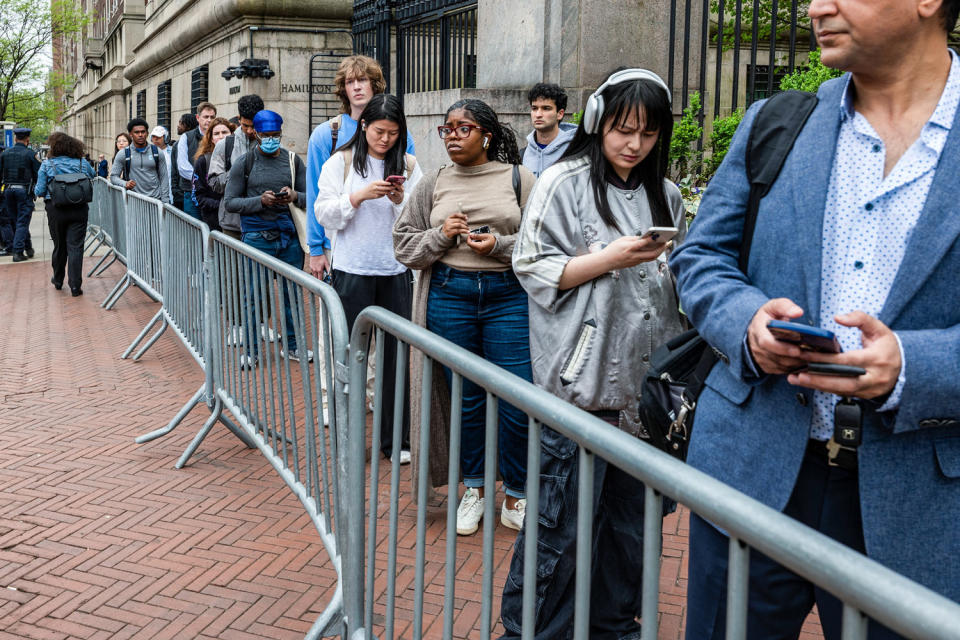Columbia's near-total lockdown over protests called extreme and divisive by students and staff
Columbia University administrators shut down much of the school Tuesday, upending campus life for virtually all students and staff members in the wake of ongoing student protests over the Israel-Hamas war.
Only essential university employees and students who live on campus were allowed through the gates of the Ivy League school in New York City's Morningside Heights neighborhood, officials announced Tuesday morning.
"The safety of every single member of this community is paramount," the university said in a statement.
This near-total shutdown left students who live off campus scrambling for their next meals and employees wondering when they'll be allowed to continue their work or research.
The spring term's final classes were held Monday, with final exams set to begin Friday and run through May 10.

For many students cramming for finals, on-campus dining is essential during this high-stakes, high-stress week.
"The timing of this is what makes it so terrible," senior engineering student Elli Stougiannou said.
Stougiannou hadn't opened her email Tuesday morning before she showed up for what she believed would be a normal breakfast at Ferris Booth Commons when she was turned away — even though she lives less than a block off campus.
"This seems a little bit extreme and unfair to a lot of people, especially during finals, when it's a high-stress environment and the political situation is already very high-stress in the past few weeks," said Stougiannou, who estimated that she eats two-thirds of her meals on campus. "And everyone needs to eat."
Despite the nearly two weeks of upheaval, students and staff members were still allowed to come and go. But security was tightened after protesters stormed and occupied Hamilton Hall early Tuesday.
So the pro-Palestinian encampment didn’t have much of an impact on lab tech David Johnson’s life — until Tuesday.
“This is my job. So yeah, it’s kind of inconvenient,” Johnson said after he was turned away at the school’s entrance at 116th Street and Amsterdam Avenue. “Up to now, everything seemed normal, just having to swipe in.”
Sophomore Karla Camacho, who estimated that she eats 80% of her meals on campus, said she worried about economically disadvantaged students who rely on Columbia dining: "It really is how a lot of students access their food."
"It was a decision that was made under the guise of student safety in the face of all the events on campus. But it's creating all these other challenges," Camacho said.
"I'm not sure it was done under good intentions. It feels like it was an attempt to divide the student body," she said. "I don't think the university considered enough the challenges the most marginalized students might be facing."
Students enrolled in the university's dining plan were given $80 credit to cover food costs if they were shut out of on-campus dining.
"It created a lot of uncertainty, how long this lockdown might last, and 80 bucks does not go far in New York City," Camacho said.
Physics doctoral candidate Varun Lochab also questioned whether Columbia's action was in the best interest of students.
“I would like to go up my office to do my work, so this is a problem,” Lochab said after having been turned away. “It’s not the [protesters at fault]. I feel like the administration should be doing more to de-escalate and not escalate the situation."
Even after New York City police, at the behest of Columbia administrators, cleared out the encampment of protesters and retook occupied Hamilton Hall on Tuesday night, university officials kept the lockdown in place on Wednesday.
This article was originally published on NBCNews.com

